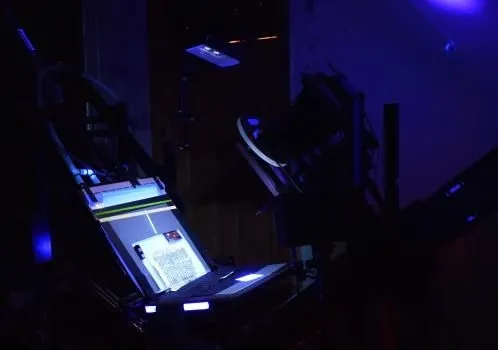Lost fragment of a 1750-year-old Bible translation found in Vatican library
Kyiv • UNN
In the Vatican, scientists have discovered a 1750-year-old biblical text, discovering a Syriac translation of the Gospel of Matthew using ultraviolet photography.

Scientists from the Austrian Academy of Sciences have discovered a new chapter of the Bible that was hidden inside a 1750 translation of the Gospel of Matthew. The scientists, while studying manuscripts in the Vatican Library, discovered the hidden text using ultraviolet photography. This was reported is reported by IFLScience, according to UNN.
Details
The hidden text was discovered as part of the Sinai Palimpsests project, where researchers are seeking to recover texts that were erased and rewritten by scribes in the 4th-12th centuries AD.
Such manuscripts, called palimpsests, are texts created on material that was already in use. Such texts were washed away or erased, and then new ones were written. This tradition was associated with a lack of materials for to create manuscripts. But even after many hundreds of years, such a lost text can be detected using ultraviolet light.

With the help of This technology allowed scientists to recover 74 manuscripts, but one text was particularly valuable. one text was particularly valuable. It was 100 years older than the oldest translations of the Bible into Greek, including the Sinaiticus Codex Sinaiticus manuscript.
The tradition of Syriac Christianity knows several translations of the Old and New Testaments. Until recently, only two manuscripts were known to contain an ancient Syriac translation of the Gospel,
This translation of the Bible was first written in the 3rd century AD and then copied in the 6th century AD. century AD. This translation offers a little more detail than the the Greek translation of the 12th chapter of the Gospel of Matthew.
For reference
The first verse of the Greek translation of this chapter reads: "At that time Jesus was walking in the sown fields on the Sabbath, and his disciples were hungry, and they began plucking ears of grain and eating." And according to a new translation text discovered by scholars, the verse ends with the phrase "they began to pluck the ears, rubbing them in their hands and eat it".
Scientists believe that this is a very important discovery, which was made thanks to their deep knowledge of ancient Syriac texts and the peculiarities of ancient writing.
This discovery proves how productive and important the interaction of modern digital technologies and basic research can be when working with medieval manuscripts,
In Rome, archaeologists found a mosaic made of shells in a luxury house26.12.23, 02:30 • 29517 views